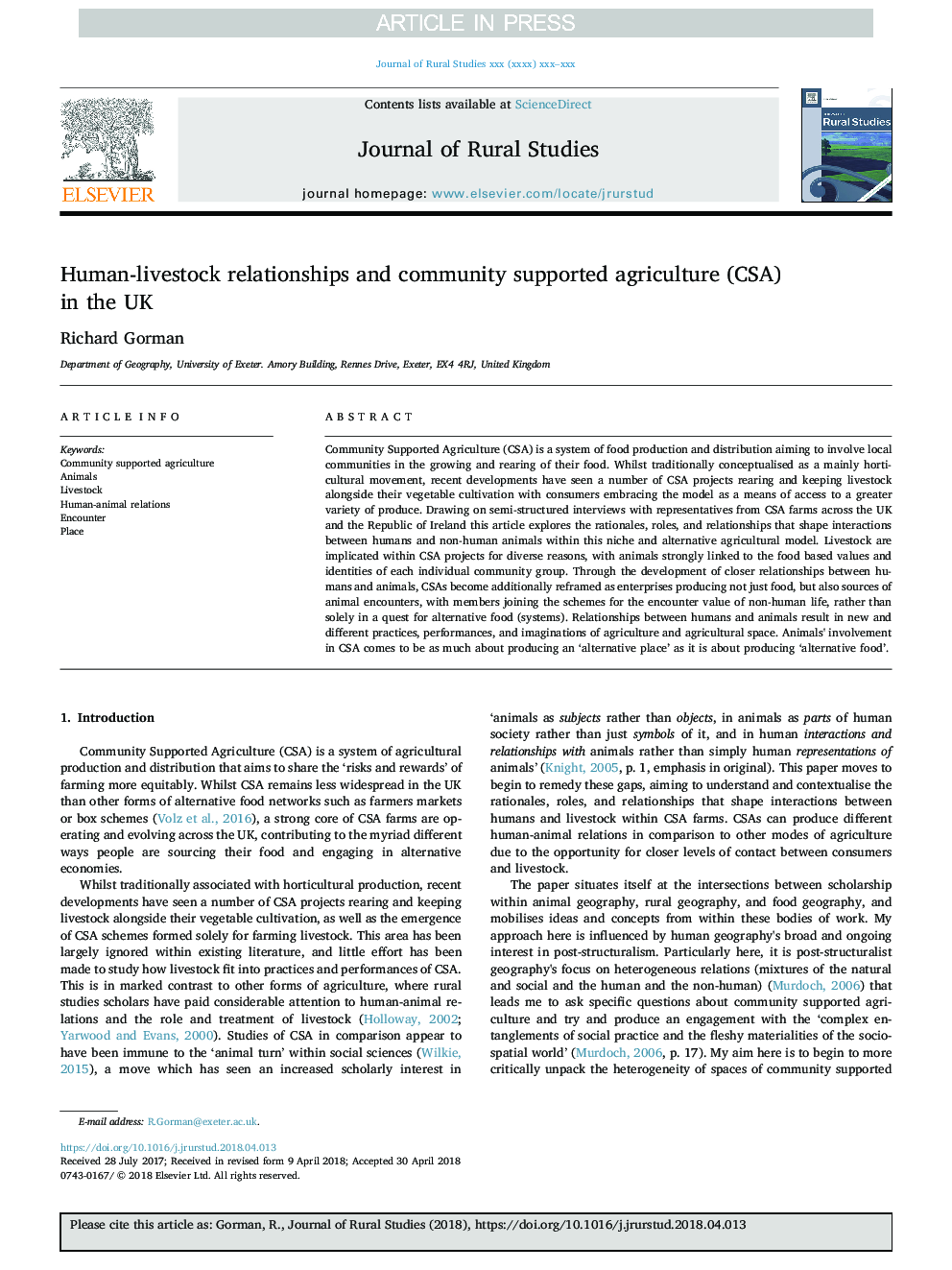| Article ID | Journal | Published Year | Pages | File Type |
|---|---|---|---|---|
| 6545247 | Journal of Rural Studies | 2018 | 9 Pages |
Abstract
Community Supported Agriculture (CSA) is a system of food production and distribution aiming to involve local communities in the growing and rearing of their food. Whilst traditionally conceptualised as a mainly horticultural movement, recent developments have seen a number of CSA projects rearing and keeping livestock alongside their vegetable cultivation with consumers embracing the model as a means of access to a greater variety of produce. Drawing on semi-structured interviews with representatives from CSA farms across the UK and the Republic of Ireland this article explores the rationales, roles, and relationships that shape interactions between humans and non-human animals within this niche and alternative agricultural model. Livestock are implicated within CSA projects for diverse reasons, with animals strongly linked to the food based values and identities of each individual community group. Through the development of closer relationships between humans and animals, CSAs become additionally reframed as enterprises producing not just food, but also sources of animal encounters, with members joining the schemes for the encounter value of non-human life, rather than solely in a quest for alternative food (systems). Relationships between humans and animals result in new and different practices, performances, and imaginations of agriculture and agricultural space. Animals' involvement in CSA comes to be as much about producing an 'alternative place' as it is about producing 'alternative food'.
Related Topics
Life Sciences
Agricultural and Biological Sciences
Forestry
Authors
Richard Gorman,
